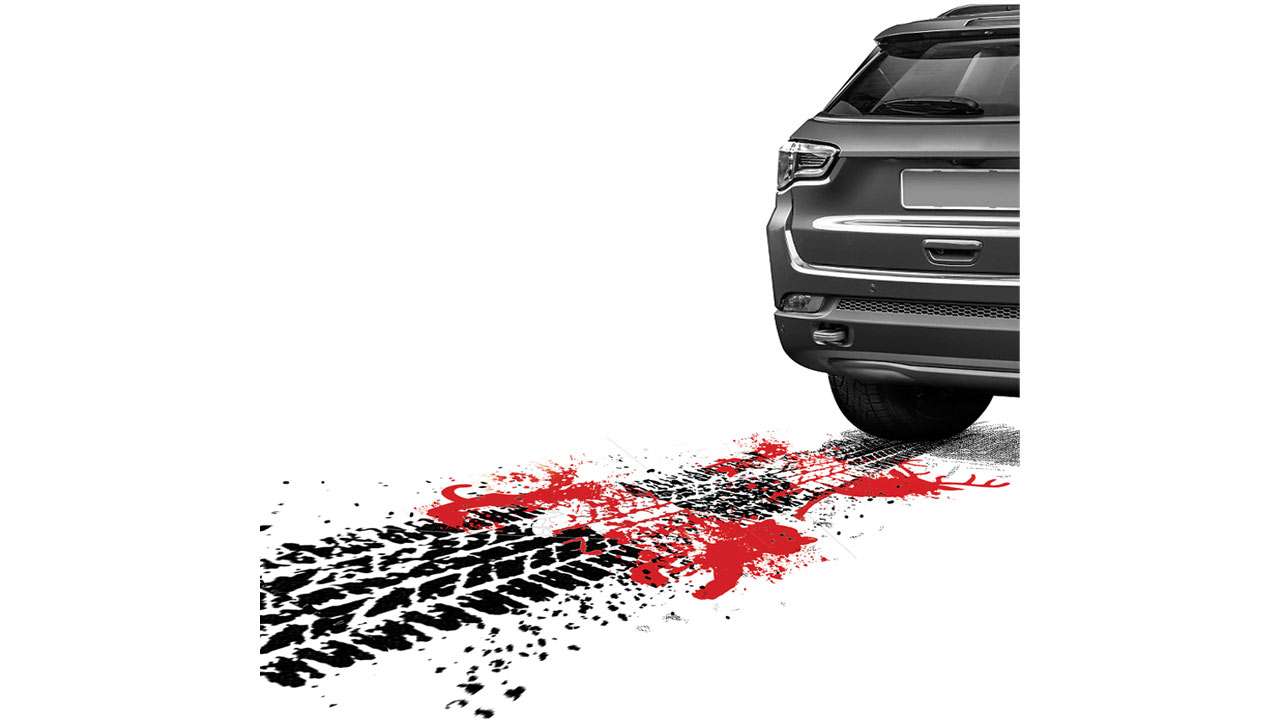
On December 17, 2017, the death of five elephants killed by a speeding train while crossing the tracks near Assam’s Balipura district shook two Wildlife Trust of India (WTI) employees – Jose Louies, Head of Wildlife Crime Control Division and Radhika Bhagat, Head of Wildlife Crime Control Division. When, on December 30, an eight-year-old tiger Bajirao from the Bor Tiger Reserve was killed by an unidentified speeding vehicle on the Nagpur-Amravati NH-6, the duo quickly devised the Road Watch app (www.roadwatchers.org). This smart phone app works everywhere in India. The user can upload the GPS-tagged data (photo of the roadkill, type of wildlife species and user’s name) which shows up on an India map in the same spot the details were uploaded from.
Since its launch this January, the app has recorded 2091 roadkill cases (at the time of going to press): reptiles – 947, mammals – 378, birds – 212, amphibians – 306, and unidentified animals – 248.
Bhagat also attributes these Wildlife-Vehicle Collisions (WVC) to rapid urbanisation. Such as village kaccha paths converted into aphsalt roads and highways. Then, the age-old problem of mismanaged roadkill count and lack of a unified digital base. For instance, the state forest department, says Bhagat, jots roadkill data in old-fashioned pen on paper. While feeding it into the digital database, more than often, the writing which is a scribble, causes data discrepancies. Even the location of the deceased animal is often roughly estimated.
 The Road Watch app aims to eliminate such inaccuracy in data collection, and approach entities such as the National Highways Authority of India (NHAI) to adapt and redesign their existing and upcoming infrastructure to benefit both, commuters and animals, with their collated findings and in-depth research on commuter-animal conflict.
The Road Watch app aims to eliminate such inaccuracy in data collection, and approach entities such as the National Highways Authority of India (NHAI) to adapt and redesign their existing and upcoming infrastructure to benefit both, commuters and animals, with their collated findings and in-depth research on commuter-animal conflict.
Assisting WTI in their research is naja.in – a wildlife snake mitigation initiative in Gujarat by herpetologist Soham Mukherjee. He says, “Roadkills have always been severely understudied and underestimated. But roadkills are a far greater threat to wildlife, than poaching and hunting. Also, we always hear about the roadkill being a glamourous animal like tiger, leopard, elephant... But the sheer numbers of smaller reptiles and amphibians is equally high, but missing in reports. Like jackals, foxes, jungle cats, wolves, hyenas, snakes, frogs, monitor lizards, turtles, tortoises, and even birds.”
Naja.in has involved multi-stake holder participation – researchers, volunteers, locals, daily commuters, and highway road authorities – in their research. For instance, they’ve found that it’s the natural instinct of amphibians, reptiles, snakes, and smaller mammals to simply freeze when they see large oncoming vehicles, assuming they’ll not be noticed. So they just stand on the road and the vehicle crushes them. Cultural prejudice is another roadblock they’ve discovered. For example, the monitor lizard is considered poisonous, and volunteers have observed vehicle owners intentionally run over it. “And if we put up a cautionary signboard in an area where there’s a high population of monitor lizards, people might intentionally lookout for a lizard to kill,” says Mukherjee.
The NGO also conducted an experiment with the WTI in April, in rural Gujarat, to study commuter behaviour and bias, at strategic road points, they placed a controlled object, like a bag of sand, and rubber snakes – an animal that is most likely to be intentionally killed. Volunteers stayed hidden in bushes and noted how many vehicles ran over or avoided both or either of the two objects. The observations will restore faith in humanity. “About 22 ran over the snake and three over the control objects intentionally. But 156 avoided the snake, and 66, the controlled objects,” says a positive Bhagat.